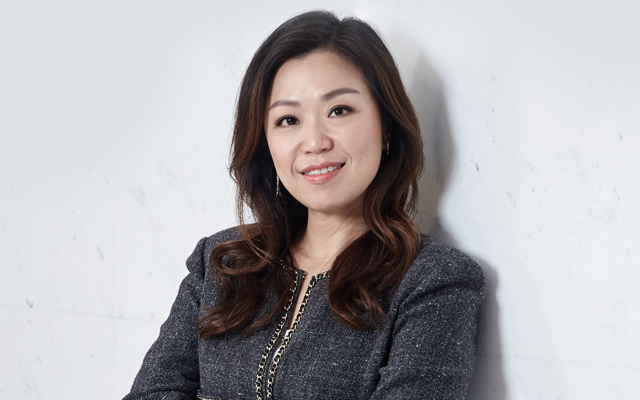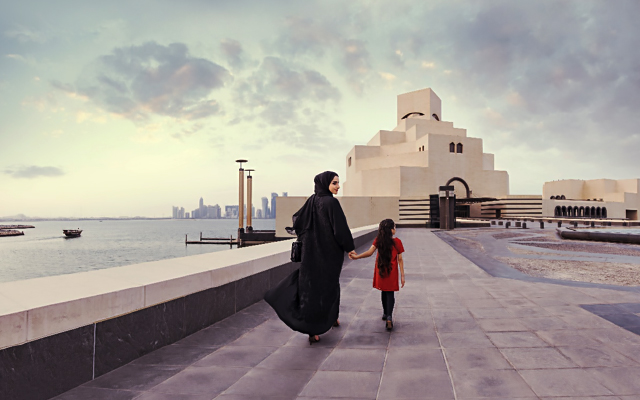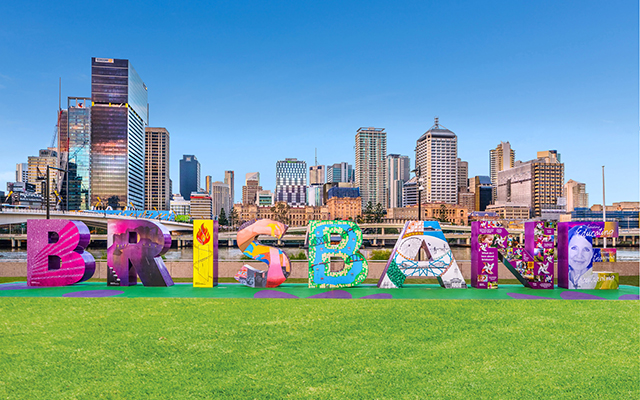In a highly competitive world of hotel and property business, Carolyn Choo, CEO and managing director of Singaporean firm Worldwide Hotels, has shown the world that she is no shrinking violet. She leads the local firm to consolidation and corporatisation in 2018, rising intact from the destruction of the Covid pandemic with her team – the company is today recognised as Singapore's largest homegrown tourist-class hotel group and has footprints in Asia
 Worldwide Hotels consolidated its six brands under one group back in 2018, and started to lay claims to being Singapore’s “largest homegrown tourist class hotel group”. What would you say are the most impressive milestones for Worldwide Hotels since 2018?
Worldwide Hotels consolidated its six brands under one group back in 2018, and started to lay claims to being Singapore’s “largest homegrown tourist class hotel group”. What would you say are the most impressive milestones for Worldwide Hotels since 2018?
We incorporated Worldwide Hotels in 2018 so that we could hold our brands together and give our group an identity. Back then, all our hotels were under different entities even though we were all part of the same group. We knew we needed to start focusing on our brands.
Hence, I think our most important milestone was when we corporatised our organisation. I brought in an external team of professionals with extensive industry experience; before, the business was very much led by myself and my cousin, Chu Poh Yong (chief operating officer at Worldwide Hotels).
Right after we launched Worldwide Hotels, Covid hit. Yet, we stuck to what we believed in for the long-term, kept every staff, refused pay cuts, and even paid out bonuses after the first year. All that really kept our staff very committed and engaged during the tough period when there were many uncertainties.
It is easy to now say that we have survived and thrived despite of Covid, but back then those were really challenging days. The pandemic lasted longer than SARS, longer than what most of us had thought. It was a real challenge to keep the faith. So, I also think that retaining the support of our people was another milestone for the company.
Another important outcome of our efforts during the pandemic was improved processes. We used that downtime to digitalise and establish cross-functional roles.
Besides all that, we have been able to continue with our (property) acquisitions after the height of Covid. In fact, we were able to purchase four hotels after Covid, including the high-profile acquisition of Parkroyal on Kitchener for S$525 million (US$394.9 million).
You now have six brands under one Worldwide Hotels banner, and they are described as offering “comfort, convenience and value for money”. Why has the company chosen to focus on this segment of accommodation?
We’re always focused on economy mid-tier because we feel that this is the segment that we can create the most value. Furthermore, we have a competitive advantage in this space – we have 41 hotels in Singapore, including the upcoming 989-key Mercure Icon City Centre (located in Singapore’s central business district and scheduled to open in 1Q2024). We are able to centralise all our functions, such as payroll, marketing, sales, revenue management, HR, and legal. This creates strong economies of scale and operating efficiencies for our group. This is something that a single owner of multiple hotels can achieve.
Is there a desire to get into the luxury hotel space one day?
We are very tempted, but that’s not where our competitive advantage lies at the moment. If we were to branch into luxury accommodation, our functions would not be as centralised as they are now.
We still have a long way to go before we become an international brand.
Your overseas assets are all bearing other brands, and are placed under external management. Are you looking at bringing your own brands overseas?
That is in our third phase of growth; our second was to build our asset base. We need to ensure that our asset base is sufficient and we have economies of scale.
If you look at all our investments, you will see they are strategically located in key cities. When we have sufficient numbers of owned hotels and can manage well with economies of scale, we can then replicate what we have in Singapore and leverage our strength. With that, we can convince external hotel owners to let us manage their properties. We cannot grow overseas by being asset-heavy.
Of course, our investment horizon is very, very long-term. We are family-owned and I do not have a KPI to show within the next few years. But that is intentional – we will only do something when we are ready and have a competitive advantage.
When the time is right for bringing your brands beyond Singapore, which brand would it be and which destinations are you mostly likely to establish it in?
Well, that would be the Hotel Mi brand. It is a fun, mid-tier brand that targets the young, confident and social generation of travellers who will pay for luxury that they value. We are not targeting the five-star type of travellers – we are not competing in that market space. We are very focused on hospitality that matters, and to provide a level of luxury that the guests value.
Now, Worldwide Hotels are already present in key cities across Asia-Pacific. So, we will be keen to bring Hotel Mi to places like Bangkok in Thailand as well as Melbourne, Sydney, Perth and Brisbane in Australia. We are interested in key cities that attract both corporate and leisure travellers, so as to provide us with a broad base of customers and more consistent demand.
Hotel Mi is also a brand that we are working to build in (home base) Singapore. Our second Hotel Mi opened in Singapore’s Short Street (surrounded by both cultural enclaves and the CBD).
You have given your high-profile Kitchener Road acquisition to Accor’s Novotel brand. Why did you choose to do this, instead of managing it yourself and giving it one of your own labels?
That was under a franchise agreement that allows us to work with Accor and use the Novotel brand. We are able to leverage on Accor’s marketing and distribution channels, and command a higher ADR and RevPAR, while at the same time manage the property ourselves.
This is just us choosing to leverage on the economies of scale that we have.
Our rooms at Novotel Singapore on Kitchener (opened November 1, 2023) are larger than the rooms we normally have – the smallest room types are an average of 28m² compared to 14.5m² to 17m² elsewhere at our other hotels. Hence, we believe that the Novotel brand, being an upper-four-star label, can do more justice to the asset.
We took the same approach with the new Mercure Icon City Centre. We wanted this asset to be the landmark hotel for Worldwide Hotels. We looked at the strong partnership that we have with Accor and saw the advantages of having the Mercure naming rights for this property. Again, the benefits of this arrangement is our ability to drive higher ADR and RevPAR, while at the same time maintain independence in operations.
You have assets overseas that are managed by Accor. Why did you not enter into a similar franchise agreement for those properties?
We will only do something when we are very ready. In Australia, we have Novotel Melbourne Central, Ibis Melbourne Central, and Ibis Styles Brisbane Elizabeth Street that are managed by Accor. Worldwide Hotels does not have the economies of scale to manage properties in Australia ourselves. Accor is established in Australia and has a cost advantage. It has local support and a dedicated Australian country head. At this moment, Accor serves us better than we can ourselves.
Are you also looking at franchise agreements with other hotel companies? As an asset owner, what sort of characteristics do you look for in a franchise partner?
We have requests for proposal from a few international hotel firms, and we have approached a few. So far, we have determined that Accor’s commercial terms and the potential benefits to Worldwide Hotels and the hotel assets are the most attractive.
As an asset owner, we want a partner that is positioned strongly in the world and has a massive loyalty membership base. It is also important that the partner has a brand that suits our product.
What else is on the horizon for the company, especially in the new year?
We are constantly excited these days, as we have many projects. The team is now busy driving business into Novotel Singapore on Kitchener, which is still in its initial months of operations. The first year is crucial, and we must stabilise business by mid-2024.
Hotel Mi Rocher is also new, and we will soon be rolling out our own press initiatives to launch Mercure Icon City Centre.
So, these projects are keeping our core teams very busy. The new year will certainly be very exciting for them.
Worldwide Hotels has so many properties in Singapore. What role do you play in supporting the destination’s inbound tourism efforts?
We participate in almost all of Singapore Tourism Board’s (STB) international fam trips, and have a representative that attends all STB-led initiatives overseas. STB is doing a great job promoting Singapore and building an exciting calendar of events for 2024. That helps a lot to catalyse hotel business.
The challenge for Singapore is that it is deemed a tad too expensive for regional markets. Last year, hotels rates here rose 25 to 26 per cent over pre-Covid. With the appreciation of the Singapore dollar, Singapore may price itself out of reach for some aspiring travellers.
We are in the mid-tier category. The ADR is around S$200 for most of our hotels and even around S$100 for some. It is important that we continue to deliver consistent service and bring value to (price-conscious) travellers who visit Singapore.
How do you balance that though? You are maintaining this affordable price range against rising cost of operations.
Yes, the cost pressure is intense. Utilities have risen by more than 30, 40 per cent. Labour cost is also much higher compared to pre-pandemic. A lot of hotels are curtailing occupancy because there is not enough supporting labour. It is a general trend in the market.
So, what we have done is to adopt cross functions and equip our staff with the ability to multi-task. I mentioned this earlier on, that we used the pandemic period to upskill our staff. There is a movement across Singapore’s travel industry to redesign jobs, so that we can pay our people better but also have them perform a bigger range of work.
How do you get your staff to recognise that expanded job functions is the norm now?
Well, higher pay is a motivator, but staff communication is most crucial. Post-Covid, we are very focused on engaging our staff. We run a quarterly newsletter in multiple languages that shares company-wide updates. We want our staff to feel like they are part of a bigger community.
We set minimum training hours that every department needs to fulfil, and that is part of their appraisal.
Does Worldwide Hotels contribute to nation-wide hospitality talent investment?
For many years before the pandemic, we worked with local institutions to provide internship programmes. We are working with Republic Polytechnic and Temasek Polytechnic in Singapore to provide internship placements this year, and will have four students joining us from March till August.
As a group, we are also very much inspired by the efforts of our founder in supporting local education. He established the Worldwide Hotels Choo Chong Ngen Foundation. Today, the foundation has a continuous relationship with Singapore’s Metta School (which supports students with mild intellectual disability and/or mild autism spectrum disorder) to take in one student yearly. We have so far hired one staff with disability.
Additionally, there will be 10 APSN Delta Senior School (a social service agency that provides special education, vocational training and employment support services for individuals with mild intellectual disability) interns for on-site training from January to May 2024.
We also worked with Yellow Ribbon Singapore (which supports ex-offenders) to employ two staff.
We want to give a lot of support to our society, and are committed to doing even more.
















